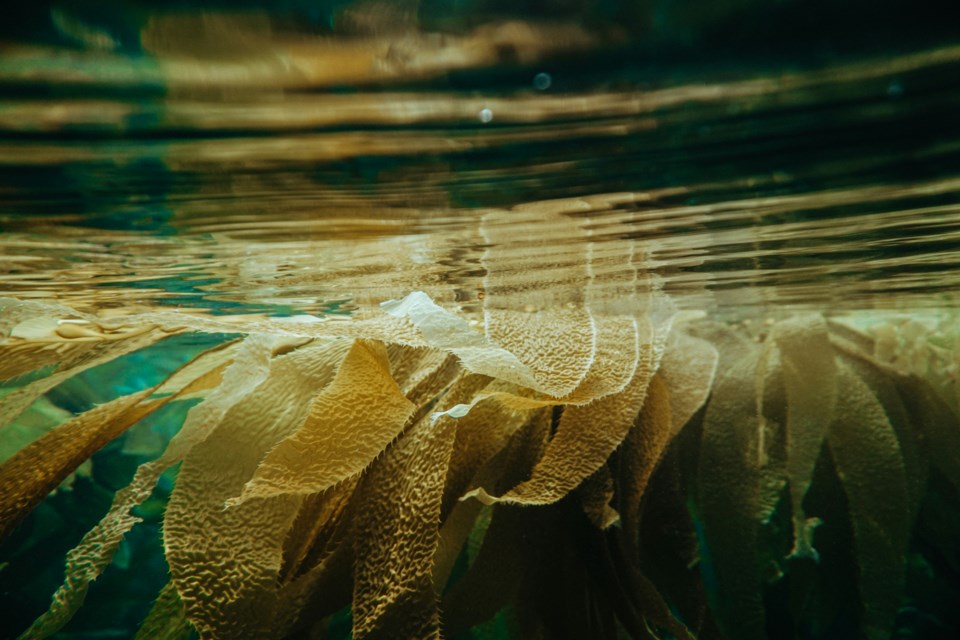Lush underwater forests formed by large brown seaweeds known as kelp are among the most abundant and productive .
Kelp forests help to support fisheries, draw down carbon and improve water quality — in the process . Unfortunately, climate change is now a . Kelp forests require cool water temperatures, and recent ocean warming has placed these valuable ecosystems in hot water.
In , we highlight by just how much some of Canada’s kelp forests along the Pacific coast have declined. We also show that, despite recent impacts of climate change, kelp forests in some areas have remained stable, offering hope for future kelp forests and shedding light on the drivers of ecosystem resilience.
Marine forests in hot water
The past decade has seen along North America’s west coast. Beginning in 2014, a string of marine heat waves created that have wreaked havoc on a .
Marine heat waves are becoming as greenhouse gas emissions continue. These heat waves are major drivers of oceanic change.
One of these major heat waves also magnified the ongoing epidemic, a phenomenon that killed . Effects of the loss of these voracious predators reverberated throughout coastal ecosystems, in the sea urchins that seastars typically eat. Overabundant urchins consumed large amounts of kelp. Left unchecked, sea urchins can .
Together, marine heat waves and seastar declines led to devastating kelp forest losses along of North America’s west coast over the past decade. This included declines . However, in British Columbia — an area with twice the amount of coastline as California, Oregon and Washington combined — the relative lack of monitoring programs has made it difficult to accurately assess the overall health of kelp forests. Until now.
Threats to kelp in Western Canada
We brought together kelp forest researchers from across B.C. and combined data to assess how recent climatic and biological changes have impacted these vital ecosystems. Our team — which included scientists from universities, not-for-profits and Canadian and First Nations governments — collated data from on-the-ground surveys, and imagery of the floating kelp canopy taken from satellites, planes, helicopters and drones.
Thanks to that carved up and reshaped Canada’s Pacific coast, B.C.’s kelp forests inhabit a rich mosaic of environments. Nearly 40,000 islands and dozens of glacial fjords create diverse habitats for kelp.
B.C.’s rich and varied coastline also , areas that are either much warmer or much cooler than their surroundings. This means that even as the overall ocean warms, water temperatures vary considerably along B.C.’s coast.
In areas such as the Strait of Georgia and the inner parts of some fjords, we found that summertime waters now exceed the maximum temperatures kelp can withstand. In these areas, kelp forests have experienced large losses, especially over the past decade.
But temperature is not the whole story.
In some parts of B.C.’s central and northern coasts, some kelp forests are also in decline despite cooler waters. Groups of sea urchins visible in aerial photos suggest that expanding herbivore populations are to blame. Sea otters, predators that could control urchins, more than a century ago and have yet to recover in these regions.
Reasons for optimism
Despite these impacts, in other parts of B.C. kelp forests have remained stable. In fact, some of these healthy kelp forests might even be growing. Areas with cool water temperatures, such as the Strait of Juan de Fuca, have , despite extensive losses close by. These regions of cooler water could provide lasting refuge for kelp forests.
Kelp forests are also stable, and even expanding, in areas around northern Vancouver Island and parts of B.C.’s central coast where newly recovered .
Together these patterns indicate that, even against the backdrop of large-scale ocean warming, small-scale differences in temperature or biodiversity can tip the balance for kelp forests teetering between stability and ecosystem loss. These patterns also suggest that ecosystems likely have the best chance of resilience to climate change when their structure is intact.
Innovative solutions are needed to save kelp
Knowledge is power. Our study provides the first province-wide assessment of how B.C. kelp forests are faring under driven by climate change. This broad understanding positions decision-makers to prioritize areas for protection, management and restoration.
initiatives to protect and restore kelp forests are gaining momentum. However, it will take to prevent kelp forest losses.
Innovative solutions are needed.
This might include restoration of important predators in the ecosystem, so that kelp forests can flourish, or developing new techniques to restore kelp forests using warming conditions.
There are inherent challenges to preserving kelp forests. It’s clear that the future of these vulnerable ecosystems depends a great deal on whether we value them enough to intervene to prevent further decline by providing the conditions for them to flourish in the future.
For the future health of all life on this planet it is essential that we appreciate the value of these wonderful forests before it is too late.
Samuel Starko receives funding from the Forrest Research Foundation, the Australian Research Council and Revive & Restore. He also received funding relevant to this project from the Pacific Salmon Foundation, the Ngan-Page Family Fund and Mitacs. He is affiliated with The Kelp Rescue Initiative, based at the Bamfield Marine Sciences Centre, and was affiliated with the University of Victoria during this project.
Brian Timmer receives funding from the Natural Sciences and Engineering Research Council of Canada (NSERC), The Royal Canadian Geographical Society's Trebek Initiative, National Geographic, the Northwest Straits Foundation, and The Kelp Rescue Initiative.
Christopher Neufeld received funding relevant to this project from the Ngan-Page Family Fund via The Kelp Rescue Initiative, based at the Bamfield Marine Sciences Centre.
Julia K. Baum receives funding from the Natural Sciences and Engineering Research Council of Canada (NSERC), Fisheries and Oceans Canada, BC Parks, and the University of Victoria. She is affiliated with The Kelp Rescue Initiative, based at the Bamfield Marine Sciences Centre.




